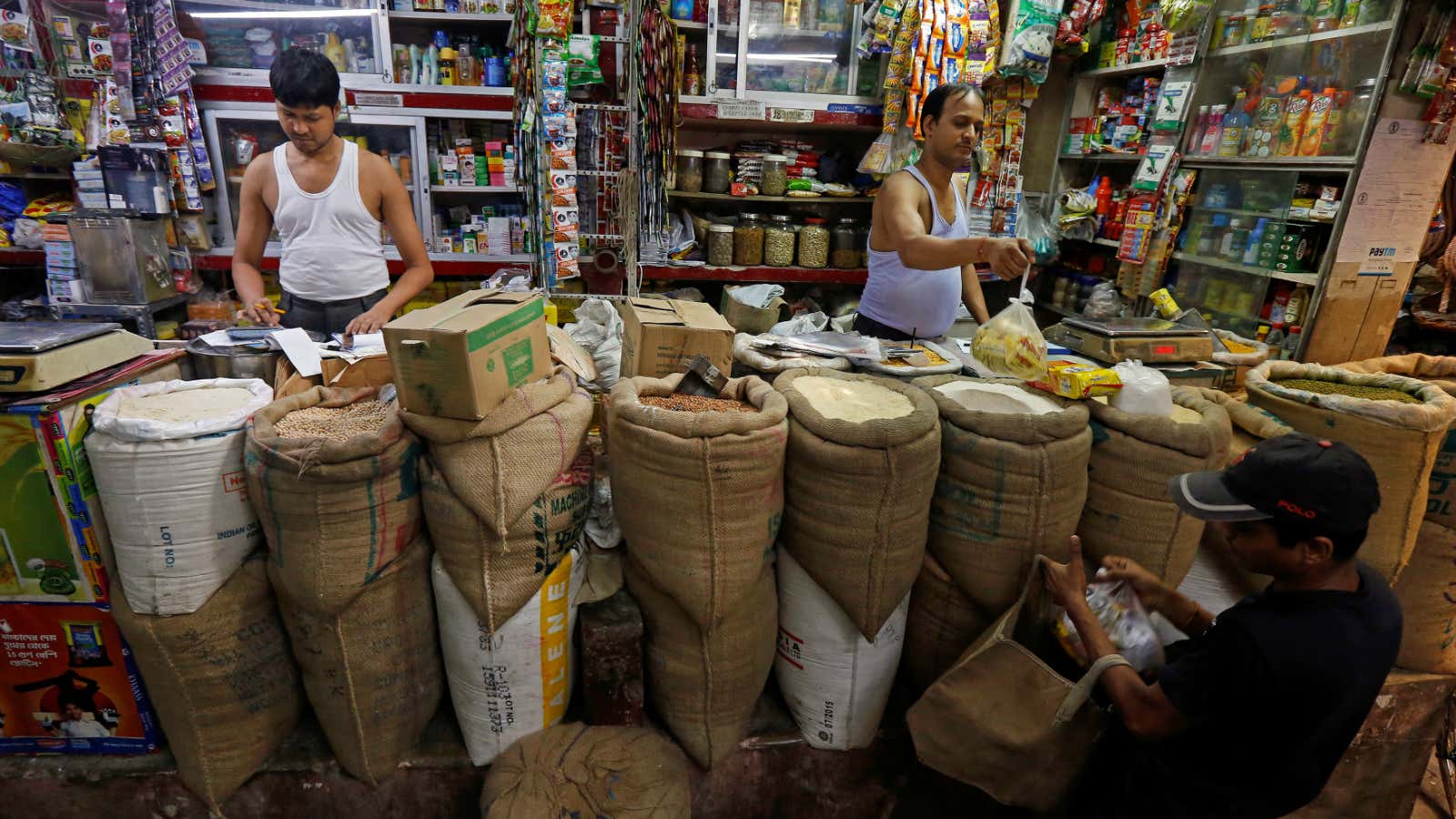The humble neighbourhood kirana will remain the king of Indian retail.
Millions of small mom-and-pop stores—kiranas as they are locally called—will continue to thrive over the next decade or two, despite the growing popularity of e-commerce and modern trade, a retail industry veteran of believes.
Arvind Mediratta would know. After all, the CEO of Metro Cash and Carry has spent over a decade setting up large wholesale stores in Asia’s third-largest economy—first with Walmart and now Metro.
“It is so much more easy to shop from the kirana. They have a local and regional assortment and are very localised to the needs of the consumers. So it’s very difficult for anyone to replace what they are doing,” Mediratta told Quartz.
Close to 12 million of these small stores dominate grocery retailing in India. And despite the urban expansion of organised retail, increased consumption, and e-commerce boom, they still account for around 98% of India’s grocery retail trade, a 2016 report by brokerage firm Kotak Institutional Equities had said.
In fact, kirana stores are the fastest-growing retail channels for fast-moving consumer goods companies, another study, conducted in 2017, suggests.
And although consumers are increasingly logging online to order everything from mobile phones to groceries—and companies such as Amazon and Big Basket are strengthening their presence—Mediratta is not too worried. “I think e-commerce will become big in non-food (goods) mostly. But the challenge will be to make money.” And even if e-commerce and modern trade expand, Mediratta estimates that kiranas will still hold 80% of the market.
The other reason why they will hold their ground is real-estate, a factor that has stymied big-box retail in India. ”You won’t see large super-centres here like in the US because real-estate is not easily available,” he said.
Servicing the kirana
Kiranas typically rely on distributors, weekly visits to wholesale markets, and direct reach from companies to stock up. Cash-and-carry businesses like Metro, on the other hand, help them procure all these goods under one roof. “A lot of small businesses gravitate towards us as they don’t get credit or working capital loans, have lower fill rates, don’t have enough SKUs (stock keeping units) and are forced to stock certain products,” Mediratta explained.
And Germany-based Metro, which set shop in India in 2003, has been reaping the benefits of servicing these stores. The turnover from its India business touched €798 million (Rs6,332 crore) last year, up 16% from the corresponding year. It works with over 1.8 million businesses—about a third of them kiranas—besides small restaurants and hotel chains.
Nevertheless, the share of organised wholesale chains, too, is still very small in India’s retail market. A bulk of the kiranas continue to rely on unorganised wholesalers and local markets—an opportunity Metro wants to cash in on. In the last one year alone, for instance, the wholesale giant has launched two pilots.
“We are doing a pilot with about 100 kiranas wherein we have given them some software and hardware with which they can track daily sales, cash flows and profitability. Anything a modern retailer can do, they can do too. They can feed customer database, send them messages and link their inventory to the wholesaler’s ordering system etc,” Mediratta said.
The second pilot, now rolled out across its 24 stores in India, involves Metro’s sales staff that works with kirana stores. “It helps us know when the kirana store needs to be refilled and what SKUs are moving. So we deliver it to their doorstep. This has helped our share of wallet go up,” Mediratta said.
